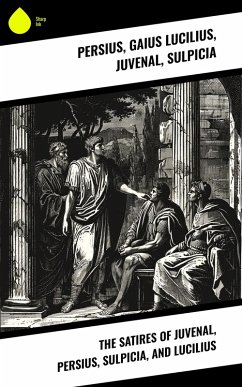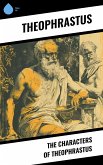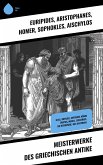In 'The Satires of Juvenal, Persius, Sulpicia, and Lucilius,' readers encounter a rich tapestry woven from the diverse threads of Roman satirical writing, encompassing a broad spectrum of literary styles and themes. This collection, by uniting these distinct voices, offers an unparalleled glimpse into the complexity of Roman society and the myriad ways in which satire served as a medium for commentary and criticism. From Juvenal's incisive invectives to Sulpicia's elegant poetics, the anthology showcases the evolutionary trajectory of satirical writing, highlighting its role as both a mirror and a scalpel to the cultural and moral milieu of ancient Rome. The inclusion of works from authors like Gaius Lucilius, with his pioneering approach, further enriches the compilation, drawing a comprehensive picture of the genre's development and its significance within the literary canon. The authors contributing to this anthology bring with them a wealth of backgrounds, experiences, and perspectives that collectively illuminate the multifaceted nature of satire as a literary form. Whether through the lens of social criticism, personal introspection, or political commentary, each writer contributes uniquely to the exploration and expansion of the satirical genre. Their works reflect not only the individual author's wit and intellect but also echo the broader historical, cultural, and literary movements of their time, offering insights into the complexities of human nature and society. The anthology aligns with and contributes to ongoing scholarly discussions on satire, providing a valuable resource for understanding the nuances and depths of this literary form. 'The Satires of Juvenal, Persius, Sulpicia, and Lucilius' invites readers to embark on a thought-provoking journey through the rich and varied landscape of Roman satire. Its pages offer an exceptional opportunity to engage with the works of some of antiquity's most astute observers of human behavior and societal dynamics. This collection is not merely a reflection on the past; it serves as a timeless reminder of the power of literature to critique, to question, and to inspire. For scholars, students, and enthusiasts of classical literature and satire, this anthology presents a unique chance to explore the depth and diversity of one of literature's most enduring and dynamic genres.
Dieser Download kann aus rechtlichen Gründen nur mit Rechnungsadresse in A, B, BG, CY, CZ, D, DK, EW, E, FIN, F, GR, HR, H, IRL, I, LT, L, LR, M, NL, PL, P, R, S, SLO, SK ausgeliefert werden.









